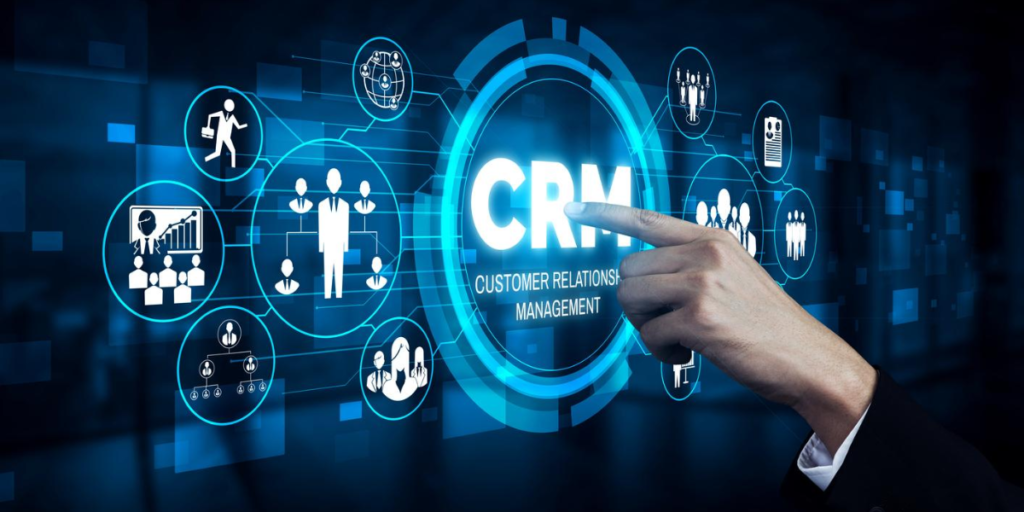In today’s digital marketing landscape, where customer experience reigns supreme, effective relationship building is no longer a luxury, it’s a necessity. This is where Customer Relationship Management (CRM) systems come in, playing a vital role beyond just sales and transforming into the backbone of modern marketing strategies.
CRM systems act as a centralized hub for all your customer interactions, storing valuable data on leads, contacts, and past interactions. But how exactly do these systems translate into marketing success? Let’s delve deeper into the reasons why CRM systems are essential for crafting winning Modern Marketing strategies.
Why CRM Systems are the Backbone of Modern Marketing?
1. Unleashing the Power of Data-Driven best digital marketing company in India
Gone are the days of spray-and-pray marketing tactics. Modern Marketing consumers crave personalization, and CRMs empower marketers to deliver just that. By gathering and analyzing customer data, including demographics, purchase history, website behavior, and email engagement, CRMs provide a 360-degree view of your audience.
This rich data allows marketers to:
- Segment audiences: Create targeted campaigns based on specific customer profiles and interests. Imagine sending personalized email offers to customers who have previously shown interest in a particular product category.
- Measure campaign performance: Track key metrics such as click-through rates, conversion rates, and engagement levels to understand what resonates with your audience and what needs tweaking.
- Identify customer trends: Analyze data to uncover buying patterns and preferences, allowing you to tailor content and promotions accordingly.
- Predict customer behavior: Leverage data to anticipate customer needs and proactively address them through targeted marketing messages.
2. Building Personalized Customer Journeys
The customer journey is no longer a linear path. Today’s consumers interact with brands across multiple touchpoints – social media, email, website, and in-store. A CRM system ensures a consistent and personalized experience across all these channels.
Here’s how CRMs facilitate this:
- Streamlined communication: CRM systems consolidate customer interactions from various channels, providing a complete communication history. This empowers marketers to personalize their communication based on past interactions and preferences.
- Targeted content marketing: Leveraging customer data, you can create targeted content that resonates with specific audience segments. Imagine delivering blog posts or videos tailored to address pain points identified through customer data analysis.
- Lifecycle marketing: CRMs enable marketers to nurture leads through the entire sales funnel by triggering automated email sequences based on customer behavior. This fosters stronger customer relationships and increases conversion rates.
- Omnichannel marketing: CRM systems can integrate with other Modern Marketing automation tools, allowing for seamless, personalized communication across all channels.

3. Fostering Customer Loyalty and Advocacy
CRM systems aren’t just about acquiring new customers, they’re also crucial for retaining existing ones. By understanding customer preferences and past interactions, you can develop targeted loyalty programs and personalized recommendations that keep customers engaged.
Additionally, CRMs can help you:
- Identify customer satisfaction: Analyze customer feedback collected through surveys or social media interactions to identify areas for improvement.
- Proactive customer service: Track customer service interactions and identify recurring issues to address them proactively, preventing customer churn.
- Turn customers into brand advocates: Leverage positive customer experiences to generate positive word-of-mouth marketing and build brand loyalty.
4. Increased Efficiency and Streamlined Workflows
Modern Marketing teams often juggle multiple tasks and manage leads across various channels. CRMs can significantly enhance efficiency by:
- Automating repetitive tasks: Schedule emails, social media posts, and follow-up messages, freeing up valuable time for marketers to focus on strategic initiatives.
- Improved team collaboration: CRMs provide a centralized platform for sharing customer information and campaign progress, fostering better collaboration within the marketing team and with other departments like sales.
- Data visualization and reporting: Gain valuable insights through intuitive dashboards and reports that track key marketing metrics.
5. Measuring Modern Marketing ROI (Return on Investment with the best digital marketing company in India)
Modern Marketing budgets are often under scrutiny, and demonstrating the value of your efforts is crucial. CRM systems empower you to:
- Track campaign costs: Associate marketing spend with specific campaigns, allowing you to calculate the return on investment for each initiative.
- Optimize campaigns based on data: Analyze the effectiveness of different marketing strategies and identify the ones that deliver the highest ROI.
- Justify marketing budget requests: With data-driven insights into campaign performance, you can confidently justify marketing budget requests and secure resources for future marketing endeavors.
Conclusion
In today’s data-driven best digital marketing company in India landscape, CRM systems are no longer optional – they’re essential. By leveraging the power of customer data, CRMs empower marketers to create personalized experiences, build stronger customer relationships, and ultimately drive business growth. If you haven’t already, consider integrating





